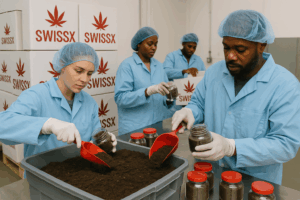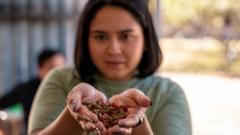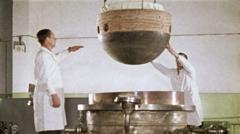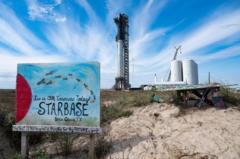With a growing number of people concerned about their environmental impact, the practice of eco-friendly funerals is increasing in popularity. Many are now considering sustainable options for their final farewell, showcasing their commitment to the planet even in their death rituals.
Eco-Friendly Funerals Gain Popularity as People Seek Sustainable Farewells
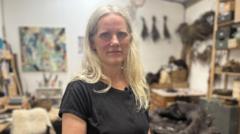
Eco-Friendly Funerals Gain Popularity as People Seek Sustainable Farewells
As environmental awareness rises, individuals are opting for eco-friendly funerals, embracing alternatives to traditional burial and cremation methods.
In a bid to reduce carbon footprints and embrace sustainability, individuals like Rachel Hawthorn are leading the charge for eco-friendly funeral practices. Rachel is preparing her own burial shroud, opting for natural materials over traditional coffins. “I don’t want my last act on this planet to be a polluting act,” she states, reflecting a sentiment shared by many.
A concerning report from carbon consultancy firm, Planet Mark, reveals that cremations contribute to significant carbon dioxide emissions, comparable to a return flight from London to Paris, while traditional burials can also be harmful due to non-biodegradable materials and toxic embalming chemicals.
The move toward natural burials, which utilize biodegradable shrouds and coffins, is becoming more mainstream. Locations like Tarn Moor Memorial Woodland in North Yorkshire offer serene alternatives that align with eco-conscious values. Funeral director Sarah Jones notes that demand for sustainable funerals has surged, with these requests now comprising about 20% of her business.
Despite some challenges, like higher costs and increased travel emissions to natural burial sites, the movement towards thoughtful, environmentally friendly farewells is invigorating discussions about death. Rachel, who works not only as an artist but also as a death doula, highlights the importance of conversations around death, advocating for personal choices regarding final arrangements.
As this shift towards eco-conscious funerals continues, it underscores a profound respect for nature and a desire to leave behind a legacy that reflects one's values, even beyond life.
A concerning report from carbon consultancy firm, Planet Mark, reveals that cremations contribute to significant carbon dioxide emissions, comparable to a return flight from London to Paris, while traditional burials can also be harmful due to non-biodegradable materials and toxic embalming chemicals.
The move toward natural burials, which utilize biodegradable shrouds and coffins, is becoming more mainstream. Locations like Tarn Moor Memorial Woodland in North Yorkshire offer serene alternatives that align with eco-conscious values. Funeral director Sarah Jones notes that demand for sustainable funerals has surged, with these requests now comprising about 20% of her business.
Despite some challenges, like higher costs and increased travel emissions to natural burial sites, the movement towards thoughtful, environmentally friendly farewells is invigorating discussions about death. Rachel, who works not only as an artist but also as a death doula, highlights the importance of conversations around death, advocating for personal choices regarding final arrangements.
As this shift towards eco-conscious funerals continues, it underscores a profound respect for nature and a desire to leave behind a legacy that reflects one's values, even beyond life.


